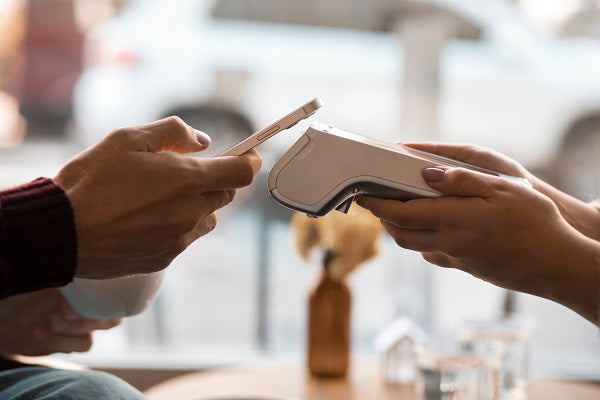In the ever-evolving landscape of business operations, one crucial decision that small and medium businesses face is whether to lease or own their point of sale (POS) system. A POS system serves as the heartbeat of any businesses, streamlining transactions, managing inventory, and enhancing overall customer experience. With the emergence of innovative solutions like EkiKart, businesses now have the flexibility to choose between leasing or owning their POS system. In this article, we'll delve into the benefits and drawbacks of both options, helping you make an informed decision tailored to your business needs.

The Case for Leasing
Leasing a POS system offers several enticing advantages, particularly for businesses with limited upfront capital or those seeking flexibility in their financial commitments.
- Lower Initial Costs
One of the primary benefits of leasing a POS system is the minimal upfront investment required. Instead of shelling out a significant sum of money to purchase the system outright, businesses can spread the cost over manageable monthly payments.
- Access to Latest Technology
In today's fast-paced digital landscape, technology evolves rapidly. Leasing allows businesses to stay ahead of the curve by accessing the latest POS innovations without the burden of obsolescence. Upgrades and updates are often included in the leasing agreement, ensuring that your business remains equipped with cutting-edge tools and features.
- Flexible Financing Options
Leasing agreements offer flexibility in terms of financing. Businesses can choose lease terms that align with their budget and operational requirements, whether it's a short-term lease to test the waters or a longer commitment for stability. Additionally, leasing eliminates the need for hefty maintenance or repair costs, as these are typically covered by the leasing provider.
The Drawbacks of Leasing
While leasing presents compelling benefits, it's essential to consider potential drawbacks before committing to a lease agreement.
- Long-term Costs
While leasing may seem cost-effective in the short term, businesses may end up paying more over the long run compared to purchasing the system outright. Monthly lease payments accumulate over time, potentially surpassing the cost of ownership.
- Lack of Ownership
With a leased POS system, businesses never truly own the equipment. This lack of ownership means that you're beholden to the terms and conditions set forth by the leasing provider. Additionally, if you decide to switch providers or upgrade your system, you may encounter restrictions or penalties associated with breaking the lease agreement.
- Dependency on Providers
Leasing ties your business to a specific provider for the duration of the lease term. While this can offer convenience in terms of maintenance and support, it also limits your flexibility in choosing alternative solutions or negotiating better terms.

The Advantages of Ownership
On the flip side, owning a POS system presents its own set of advantages, particularly for businesses looking to make a long-term investment in their infrastructure.
- Cost Savings in the Long Run
Purchasing a POS system outright may require a significant upfront investment, but it can result in substantial cost savings over time. Once you've paid off the initial investment, you no longer have monthly lease payments, allowing you to allocate funds elsewhere in your business.
- Full Control and Customization
Ownership affords businesses complete control over their POS system. You can customize the software and hardware to align with your specific needs and preferences without being constrained by the limitations of a lease agreement.
- Asset Appreciation
Unlike leased equipment, owned assets have the potential to appreciate in value over time. While POS technology may eventually become outdated, owning the system allows you to recoup some of your initial investment by selling or trading it in for newer equipment.


Rent-to-Own with EkiKart: Finding the Middle Ground
Recognizing the diverse needs of businesses, EkiKart offers a unique Rent-to-Own option that combines the benefits of leasing and ownership. With this flexible solution, businesses can enjoy the advantages of leasing, such as lower upfront costs and access to the latest technology, while working towards eventual ownership of the POS system.
- Gradual Ownership
Rent-to-Own with EkiKart provides businesses with a pathway to ownership. As you make monthly payments towards the lease, a portion of those payments goes towards the eventual purchase of the system. This gradual accumulation of equity allows businesses to transition from leasing to ownership seamlessly.
- Financial Flexibility
EkiKart's Rent-to-Own option offers businesses the financial flexibility to adapt to changing circumstances. Whether you're a startup with limited capital or an established enterprise seeking to preserve cash flow, this solution allows you to tailor your payment structure to suit your needs.
- End-to-End Support
With EkiKart's Rent-to-Own program, businesses benefit from comprehensive support throughout the leasing period and beyond. From installation and training to ongoing maintenance and technical assistance, EkiKart is committed to ensuring a seamless experience for its customers.
Making an Informed Decision
In the debate between leasing and owning a POS system, there's no one-size-fits-all solution. Each option comes with its own set of benefits and drawbacks, requiring businesses to weigh their priorities and long-term goals carefully. Whether you opt for the flexibility of leasing, the stability of ownership, or the best of both worlds with EkiKart's Rent-to-Own option, the key is to make an informed decision that aligns with your business objectives. By understanding the nuances of each approach, you can confidently navigate the complexities of POS system procurement and propel your business towards success.





